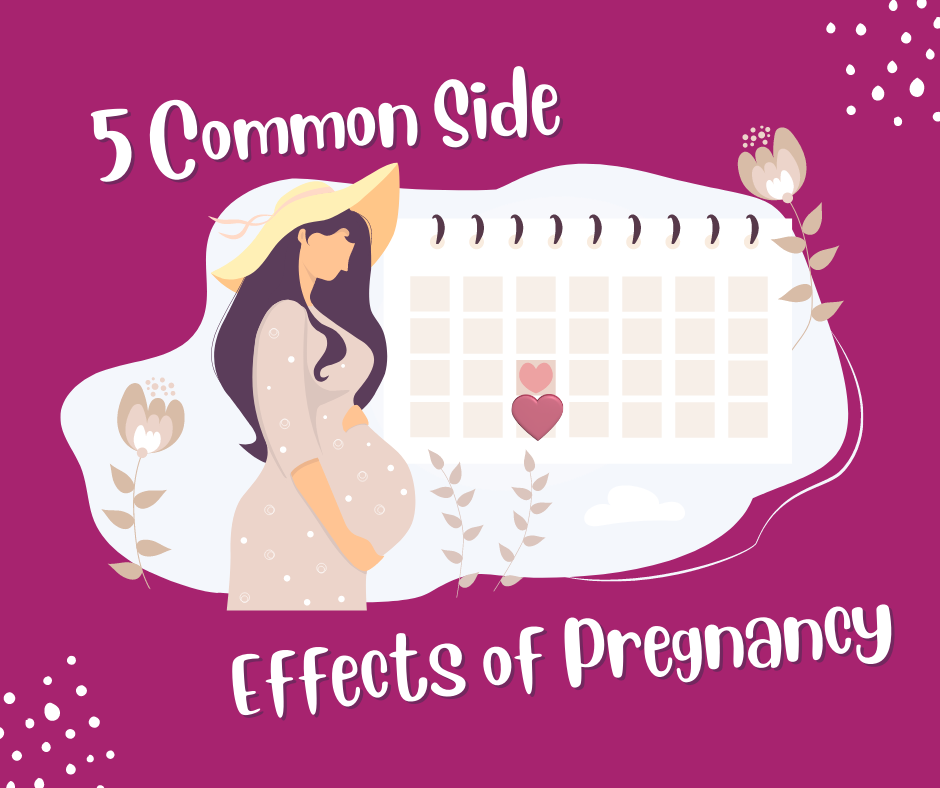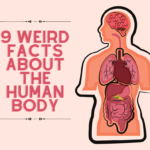

Pregnancy is a happy and exciting time for many women around the world, but it comes with its fair share of side effects that affect them. From nausea to aches and digestive problems, a woman goes through a lot of things just to birth a baby, and they need to be well-respected for it! If you or a loved one is pregnant, it’s important to know the side effects of pregnancy so you can help them get through it and nurture a healthy baby.
Below are the most common side effects of pregnancy.
1. Morning Sickness
Morning sickness are one of the most well-known side effects experienced by many women during pregnancy. It is characterized by nausea and/or vomiting, often occurring in the morning, but can happen at any time of the day.
Morning sickness is caused by the rapid increase of hormones in the body during early pregnancy, specifically hCG (human chorionic gonadotropin) and estrogen. It typically begins around the sixth week of pregnancy and lasts until around the twelfth week, but can last longer in some women. Some women may experience only mild symptoms while others may have more severe symptoms.
Drinking water, eating small, frequent meals, and getting enough rest can help alleviate symptoms. If symptoms are severe, it’s important to speak with a healthcare provider.
2. Fatigue and Soreness
Fatigue and muscle soreness are more common side effects that women face during pregnancy. The increase in hormones, specifically progesterone, during pregnancy can cause fatigue and make it difficult for a woman to get restful sleep. Another hormone called relaxin, which is a hormone that causes the joints and ligaments to loosen, can also lead to muscle and joint pain.
Meanwhile, the physical changes that occur during pregnancy like added weight and strain on the body can most definitely lead to fatigue and muscle soreness. As the baby grows, a woman’s center of gravity shifts, causing back and muscle strain. Plus, the woman is growing a whole human inside of her—who wouldn’t be tired of dealing with that for nine months?
3. Bad Hair, Skin, and Nails
During pregnancy, hormonal changes can lead to changes in the appearance of hair, skin, and nails. Some women may experience hair growth and thickening, while others may experience hair loss or dryness. Pregnancy can also cause changes in the skin, such as dark patches (melasma) or acne. Nails may also become brittle or develop ridges. This will all depend on the woman and the kind of pregnancy they have.
These changes are due to the increase of hormones during pregnancy and typically resolve after giving birth. Eating a balanced diet, drinking water, and getting enough rest can help maintain healthy hair, skin, and nails during pregnancy.
4. Constipation
Pushing a baby out is already hard in itself. But pushing poop that doesn’t want to come out too? Poor mama.
The hormonal changes in the body during pregnancy can slow down the digestive process, causing the stools to become hard and difficult to pass. The growing uterus can also press against the intestines, making bowel movements more difficult.
Additionally, many pregnant women may avoid foods high in fiber to avoid gas and bloating, which can lead to constipation. Drinking water, eating a diet high in fiber, and getting regular exercise can help alleviate constipation during pregnancy.
5. Heartburn
Lastly, heartburn occurs a lot during pregnancy. The hormonal changes cause the muscle that separates the esophagus and stomach to relax. This allows stomach acid to flow back into the esophagus, causing heartburn. The growing uterus can also put pressure on the stomach, exacerbating the problem.
Eating small, frequent meals and avoiding foods that may cause heartburn can help alleviate symptoms. Drinking water and getting regular exercise can help as well. If the heartburn is interrupting your sleep at night, sleep with an extra pillow or in a semi-upright position to let gravity do the work for you.

